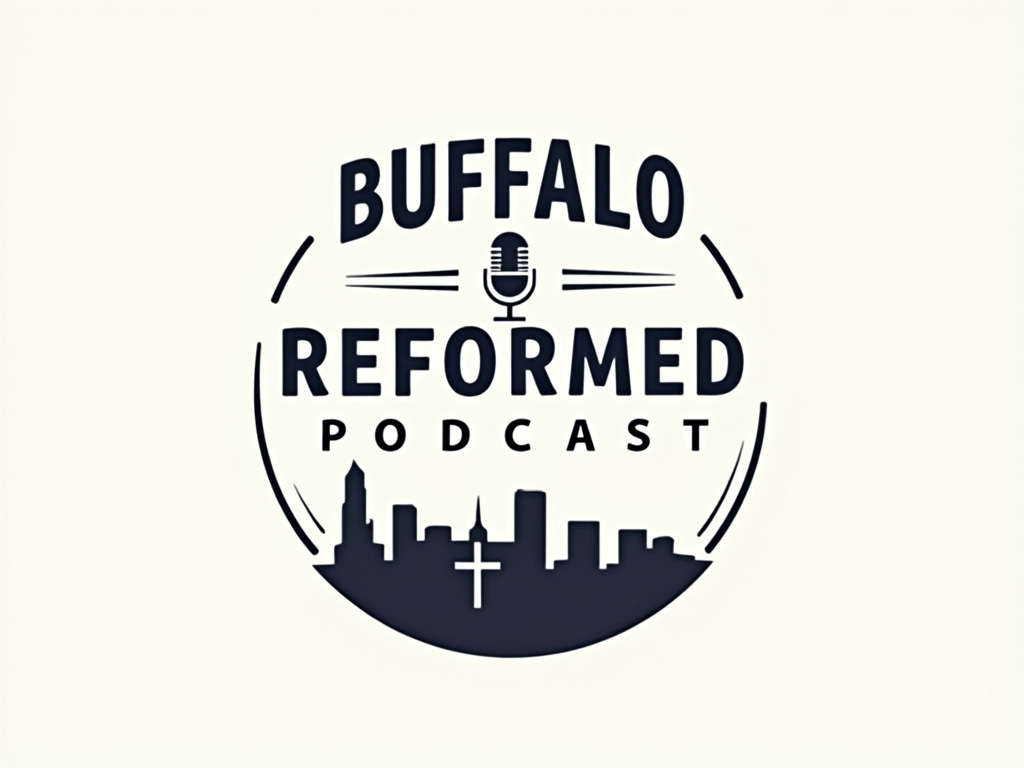Show Notes
Episode Music
Bach/Stokowski Fugue in g minor “Little,” BWV 578
This episode’s music is a transcription for orchestra of a piece that J. S. Bach wrote originally for organ. You can listen to a more authentic version below.
A “transcription” means that a piece of music was originally written for one instrument (organ in this case) but was arranged for a different instrument or group of instruments (like an orchestra).
Time Stamps
(00:00:00) Introduction to the episode
(00:01:40) Intro to Covenant Renewal Worship
(00:07:22) Aaron's liturgical development
(00:18:22) Nick's Liturgical development
(00:23:37) – Nick on Paedocommunion
(00:31:24) Josh on Liturgical development
(00:50:45) Regulative Principle of Worship & Covenant Theology
(00:55:51) Recap of our distinctives at CRC
(00:56:50) Critiques of our approach
(00:58:10) Paedocommunion
(01:06:57) Family Integrated Worship
(01:14:25) Paideia
(01:17:00) Fatherly Abdication
(01:26:31) Podcast Recommendations
Definitions
Liturgy
Our English word, liturgy comes from a combination of two Greek words: leiton, which means public (think laity), and ergon, which means work. One form of this Greek word is λειτουργέω (leitourgeo), which is used throughout Scripture, and usually means, “to perform religious rites as part of one’s religious duties...”1 A similar word used is latreia, which usually means, “to perform religious rites as a part of worship.”2 These words, among others, are used to describe both Old and New Testament worship (Romans 12:1, Hebrews 9:6, Acts 13:2). “Performing religious rites” is an important concept because it conveys an order, or a pattern, in how we approach God.
One of the best books on this subject of worship, liturgy, and covenant renewal is by Jeffrey Meyers. It is called The Lord’s Service: The Grace of Covenant Renewal Worship. In this book, Meyers states,
“More important than finding the word “liturgy” in the Bible is the recognition that God has established a carefully delineated way of approaching Him. God’s way of graciously drawing us into his presence is not arbitrary, but follows a predictable sequence that is controlled by His holy and merciful character as the Triune God.”3
God has revealed to us in His Word how we ought to approach Him. Therefore, at Covenant Reformed Church, everything we do in our worship is because there is precedent in the Scripture.
Paedocommunion
Another subject discussed in this episode is paedocommunion. This is the practice of allowing the baptized children of believers to partake in the Lord’s Supper. The Lord’s Supper is one of only two ordinances or sacraments recognized by Reformed churches, the other being baptism. The reason we only recognize these two is because these are the only two instituted by Jesus Christ in the New Testament (see Westminster Confession of Faith, Chapter 27).
Some Reformed churches practice credocommunion. From this view, they allow baptized persons to partake of the Lord’s Supper only after they have made a credible profession of faith in Jesus Christ. Depending on how much baggage comes along with the word “credible” will determine at what age these churches tend to allow their children to partake in this ordinance. You will hear mention of a study done by The Orthodox Presbyterian Church on paedocommunion in 1987. You can read that HERE.
Covenant Theology
Our perspective on the ordinances is a direct result of our affirmation of Covenant Theology. In short, this is a way of reading the Bible as one book, organized according to the progressive revelation of God to humanity by means of covenants. This culminates in the New Covenant, which was foretold throughout the Old Testament, and revealed in the New Testament through the person and work of Jesus Christ.
The covenantal view is usually contrasted with Dispensationalism which views the Bible as organized into dispensations. Within these dispensations, God acted differently toward people at different times.
For a more in-depth summary of Covenant Theology, see the video below.
Family Integration
This term refers to the practice of worshipping as a family rather than having the children leave the service for “children’s church.” Inherent in our use of this term is the inclusion of the children in every aspect of the life of the church, not just worship. This includes baptism, the Lord’s Supper, fellowship, and evangelism.
By including our children in everything, we are raising them into the Christian paideia. This is another Greek word which means “enculturation.” We are “enculturating” our children into this way of life.
Johannes P. Louw and Eugene Albert Nida, Greek-English Lexicon of the New Testament: Based on Semantic Domains (New York: United Bible Societies, 1996), 532.
2 Johannes P. Louw and Eugene Albert Nida, Greek-English Lexicon of the New Testament: Based on Semantic Domains (New York: United Bible Societies, 1996), 532.
Meyers, Jeffrey J.. The Lord's Service: The Grace of Covenant Renewal Worship (p. 76). Canon Press. Kindle Edition.

















Share this post